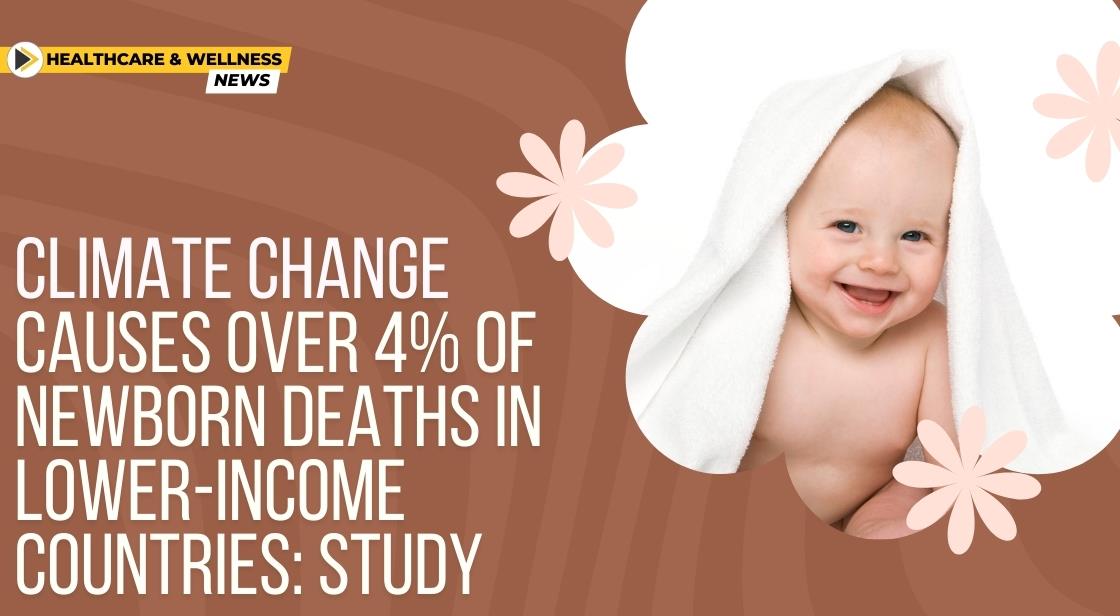Climate Change Causes Over 4% of Newborn Deaths in Lower-Income Countries: Study

News Synopsis
A new study sheds light on the devastating impact of climate change on newborn health in low- and middle-income countries. Researchers found a clear link between extreme temperatures and increased newborn mortality rates, highlighting an urgent need for climate action and improved healthcare infrastructure in developing regions.
Rising Temperatures, Rising Risks
The study, published in Nature Communications, examined data from 29 countries, primarily located in sub-Saharan Africa and Asia. The analysis revealed that over 4% of newborn deaths in these countries were attributable to extreme heat and cold, influenced by climate change.
-
Heatwaves and Newborn Deaths: Researchers estimated that roughly 1.5% of annual newborn deaths were associated with extreme heat during the study period (2001-2019). Climate change was linked to approximately 32% of these heat-related deaths, translating to over 175,000 fatalities.
-
Cold Temperatures Can Be Deadly Too: Interestingly, the study also found that climate change has led to a decrease in newborn deaths related to extreme cold by over 30%. This translates to an estimated 457,000 fewer deaths. However, the overall impact of rising temperatures outweighs this benefit.
Sub-Saharan Africa Hit Hardest
The study identified Sub-Saharan African nations as bearing the brunt of climate change's impact on newborn deaths due to extreme temperatures. Four countries – Pakistan, Mali, Sierra Leone, and Nigeria – were found to have the highest total infant mortality rates and the highest rates of newborn deaths linked to high temperatures (exceeding 160 per 100,000 live births).
These findings highlight the vulnerability of developing regions with limited resources to cope with the challenges of climate change.
Newborn Vulnerability: A Delicate Balance
Newborn babies are particularly susceptible to temperature extremes due to several factors:
-
Underdeveloped Thermoregulation: Newborn infants have immature body temperature regulation mechanisms.
-
Rapid Metabolism: Their high metabolic rate generates significant heat.
-
Limited Sweating Ability: Newborns have minimal ability to sweat, making it difficult for them to release excess heat effectively.
These factors combined create a precarious situation where exposure to extreme heat or cold can quickly become life-threatening.
A Global Challenge: Protecting Our Most Vulnerable
The study underscores the critical need for a multi-pronged approach to address this issue:
-
Combating Climate Change: Global efforts to mitigate climate change are essential to reduce the frequency and intensity of extreme temperature events.
-
Strengthening Healthcare Systems: Investing in healthcare infrastructure and newborn care facilities in developing countries is crucial for improving survival rates.
-
Community Awareness: Educating communities about the dangers of extreme temperatures and promoting practices to keep newborns safe during heatwaves and cold spells can significantly reduce risks.
By addressing these challenges, we can work towards a future where climate change no longer threatens the lives of our most vulnerable populations – newborn babies.
Conclusion
The findings of this study paint a concerning picture, highlighting the devastating impact of climate change on the world's most vulnerable population – newborns. While the decrease in cold-related deaths offers a glimmer of hope, the overall rise in newborn mortality due to extreme heat presents a significant challenge.
This calls for immediate action on multiple fronts:
-
International cooperation is crucial to address climate change at its source, reducing greenhouse gas emissions and mitigating global temperature rise.
-
Investing in healthcare infrastructure in developing countries is essential. Strengthening healthcare systems with adequate facilities and trained personnel can significantly improve newborn survival rates.
-
Community education plays a vital role. Equipping families and communities with knowledge about the dangers of extreme temperatures and strategies to keep newborns safe during heatwaves and cold snaps can be life-saving.
By taking these steps, we can work towards a future where climate change no longer jeopardizes the lives of newborns. Protecting the health of our youngest generation is not just a moral imperative; it's an investment in the future of our planet.









